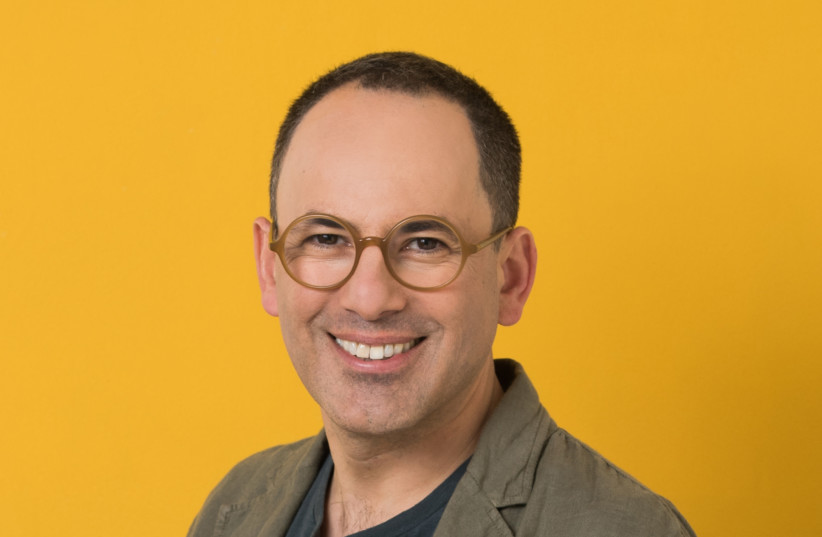Momo Mahadav is the CEO of Maala, a nonprofit corporate membership organization promoting Corporate Social Responsibility (CSR) in Israel. Under his leadership, the organization boasts a roster of 115 companies, all of which are committed to go beyond business as usual and make an effort to give back to society and the planet’s health.
Mahadav started his career as a community organizer, working on projects such as urban regeneration in Tel Aviv’s Florentine neighborhood and urban sustainability with the Society for the Protection of Nature. In 2006, he moved to Maala, where he spent three years as its vice president before assuming the role of CEO in 2009.
In December of 2019, Maala published a book co-authored by Maala and Prof. David Grayson titled Leaving No One Behind, which gives a comprehensive overview of how businesses can boost inclusive growth.
Talk to me about Maala’s mission statement. What are the organization’s goals?
“Maala started back in 1998, and the mission statement back then was “giving back to the community.” The message was that the business community makes money and has a kind of [societal and ecological] impact – and we need to give back.

“Today, in 2022, giving back to the community is always the baseline or threshold. But what we're looking at now is a more systematic approach to having an impact on society and the environment. The term that's currently very prominent is ESG: Environmental, Social, Governance.
Maala and its members aim to “go beyond business as usual and – for example – make attempts to make sure that your workforce is more diverse and everyone feels included. The same goes with the environment: You can just follow the rules and do what you have to – but you could go beyond that, and invest in [environmentally-conscious] technologies and new products and production processes that can lead to a better environment, fight climate change and so on.”
Maala’s goal is surely to get as many companies as possible on board with those principles — how is the business industry doing with ESG compliance, both globally and locally, here in Israel?
“If you look at the field now, there’s a growing number of companies entering it, who are appointing and forming positions for CSR or ESG officers. Globally, the amount of funding going toward ESG investments has kind of really soared. In some cases, it’s tripled.
“In the States and Europe, the most talked about and most measured aspect is the environment. With climate change being a major concern, [this means] asking companies to report on emissions, to report their carbon footprints and even to commit to long-term goals that would allow a kind of real shift in terms of emissions and tackling climate change.
In Israel, environmental concerns have also risen, but I think that it's still safe to say that the focus might be a bit stronger on the social aspects — diversity and inclusion of employees.
Momo Mahadav, Maala CEO
“In Israel, environmental concerns have also risen, but I think that it’s still safe to say that the focus might be a bit stronger on the social aspects – diversity and inclusion of employees. All in all, focusing on how you manage your engagement to stakeholders and giving back to the community – those are also important in Israel.”
Has the COVID pandemic negatively impacted companies’ willingness to take the extra step toward a commitment to ESG and CSR principles?
“Actually, the industry is on the rise – it’s quite exciting, and some even felt it was a bit surprising; but it seems that COVID has boosted ESG efforts. If you look at our immediate community, as of the fourth quarter of 2020 through 2021, about 30 new companies have joined Maala. That’s a record number. Usually, about 10 or 12 companies join per year.
“In previous economic crises, like in 2008 or 2011, many Israeli companies pulled back [from ESG commitment]. It wasn’t a full-on crash, but between 10-25% of the companies doing CSR pulled back. The message was that “we’re in survival mode, we can’t afford to go beyond.” With COVID, the opposite happened. Something about the way that people feel humbled in front of a thing that we can’t control, a force of nature, really emphasized the importance of social cohesion, the importance of the environment and things like that.”
Something about the way that people feel humbled in front of a thing that we can't control, a force of nature, really emphasized the importance of social cohesion, the importance of the environment and things like that.
Momo Mahadav, Maala CEO
You mentioned that Israel is currently focused mostly on the social aspect of ESG – what could make Israeli companies more invested in committing to environmental efforts?
“To begin with, we’re in a much, much better state than we were 10 or 20 years ago, when major companies felt that it was quite easy to ignore environmental issues, given the fact that public awareness was low. Regulation was not necessarily enforced, or if it was it was something negligible. That has completely changed.
“What we should look at with Israeli companies is definitely much more transparency, which is on the rise. Another change factor is commitment to long-term goals – I can count on one or maybe two hands the number of Israeli companies committed to long-term goals for 2030 or 2050 in terms of the environment. The third factor, which is [basically] always very present in the Israeli discussion, is innovation.
“I would put my finger on innovation, given the fact that the overall emissions of Israeli companies are relatively negligible in terms of the global footprint. But if you look at the start-ups listed on the Tel Aviv Stock Exchange, you see a number of companies in alternative energy, food-tech, solar energy, renewable energy – and all those things could make a difference, if those companies succeed, both in Israel and globally.”
